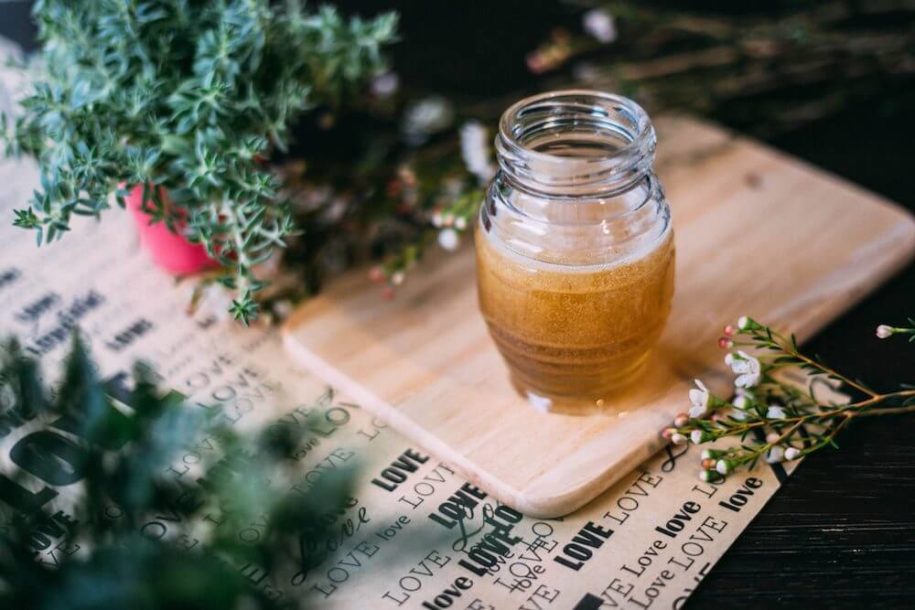Natural Remedies for the Common Cold
By Allison Riehs | Naturopath
‘Natural remedies for the common cold’ is a popular Google search term come winter time in Australia.
That’s how we know people are looking for gentle ways to support the health of themselves and their families.
So, what exactly is the ‘cold’? And how can we beat those dreaded symptoms when the cold strikes?
What is a cold?
The common cold is the most common human disease1, usually presenting as a mild, viral infection of the nose and throat. Rhinoviruses are the most prevalent cause of the common cold and respiratory tract infections, and can also cause ear and sinus infections.
What are the signs and symptoms of a common cold?
If you have a cold – you’ll know about it! Most people afflicted with the common cold will describe feeling ‘miserable’. Symptoms of the common cold can include blocked or runny nose, sneezing, throat clearing, coughing, sore throat, weakness, dizziness and teary eyes.2.
Feelings of general malaise, fatigue and irritability are also part and parcel of having a cold. You’re likely to want to curl up on the couch or hide away in bed – and that is the best place to be to rest up, and avoid spreading the virus.
What are the risk factors for getting a cold?
Although anyone can catch a cold and most people will experience many colds in their lifetime3, some people seem to be more prone to colds than most, and this can be indicative of a weakened immune system.
Many factors can contribute to becoming ‘run down’ and being more prone to getting sick, including a lack of sleep, high stress levels and nutritional deficiencies.
What natural remedies are available for the common cold?
There is no single cure for the common cold 4, however most people will recover from a head cold within a week.
But you can take steps to relieve symptoms and reduce the severity of the common cold, using natural remedies.
1. Stay Hydrated
This one might seem obvious, but it’s easy to forget to drink when you’re feeling unwell and hiding away from the world. Whether you feel like it or not, staying hydrated is critical to getting better. Whether it’s water, juice, clear bone broth or warm lemon water with honey, which helps loosen congestion and increase energy levels, keeping up fluids may help to ease some of the common cold symptoms5. And, of course, avoid alcohol, coffee and caffeinated drinks, which can lead to dehydration.
2. Soothe a Sore Throat
Yes, this might be one of the oldest remedies known to man and you’ve probably been hearing about it since you were a child – but it works! Studies have found as little as a quarter of a teaspoon of salt dissolved in warm water can temporarily relieve a sore throat6, whilegargling with 20ml of water for 45 seconds, three times a day, significantly reduced the risk of upper respiratory tract infection.7
3. Supplements and Herbs
Antibiotics are not effective against the common cold and global health authorities have urged physicians to stop prescribing antibiotics for colds and respiratory infections8.
So when a cold strikes, many of us turn to nature’s medicine cabinet, using herbs and nutrients to help alleviate symptoms. But which ones actually work?
Studies have found Zinc administered within 24 hours of the onset of symptoms reduces the duration and severity of the common cold in healthy people9. When supplemented for at least five months, zinc reduces cold incidence, school absenteeism and prescription of antibiotics in children.
Studies show Vitamin C can reduce the duration and severity of a cold10 and evidence suggests Vitamin C also works as a general immune support when used preventatively.
Echinacea has been found effective in reducing symptoms when taken from the outset and for the duration of the cold.11
Elderberry is another cold-busting natural remedy, and its benefits are said to come from antioxidant and antiviral properties which act on symptoms like headaches, muscle aches and nasal congestion12.
4. Garlic and Ginger
Food is medicine, and garlic and ginger are two foods that have been used for medicinal purposes for centuries.
Not only useful for warding off vampires, studies show garlic consumption can reduce the risk of becoming sick with the common cold in the first place, as well as shortening the duration of symptoms.11
While ginger is a spicy and inexpensive root with anti-inflammatory, antioxidant and anti-nausea properties that can help to relieve cold symptoms.13
5. Rest
Even if you do nothing else – at least give your body time to rest and recover.
Easier said than done, right!
Take it easy, sleep, read, relax, and remember, the laundry and dishes will still be waiting for you.
For the best chance at a quick recovery from cold symptoms, dive into the pile of books you’ve been wanting to read or catch up on your favourite Netflix series.
Think of this time as a forced period of rest where your body is telling you ‘enough!’ It’s time to slow down, go with it and get well soon!
References:
- Passioti. M, et al, 2014, ‘The Common Cold: Potential for Future Prevention or Cure’, Current Allergy and Asthma Reports, <https://www.ncbi.nlm.nih.gov/pubmed/24415465>
- Kirkpatrick. GL, 1996, ‘The Common Cold’, Primary Care: Clinics in Office Practice, Vol 23, Issue 4, pp 657-675 <https://www.ncbi.nlm.nih.gov/pubmed/8890137>
- Worrall. G, 2011, ‘Common Cold’, Canadian Family Physician, Vol 57, Issue 11, pp 1289-1290, <https://www.ncbi.nlm.nih.gov/pmc/articles/PMC3215607/>
- Heikkinen. T-Järvinen. A, 2003, ‘The Common Cold’, The Lancet, Vol 361, Issue 9351, pp 51-59, <https://www.ncbi.nlm.nih.gov/pubmed/12517470>
- Simasek. M-Blandino. D, 2007, ‘Treatment of the Common Cold’, American Family Physician, Vol 74, Issue 4, pp 515-520, <https://www.ncbi.nlm.nih.gov/pubmed/17323712>
- Emamian. MH, 2013, ‘Respiratory Tract Infections and its Preventive Measures’, International Journal of Preventive Medicine, Vol 4, Issue 9, pp 1030-1035 <https://www.ncbi.nlm.nih.gov/pmc/articles/PMC3793484/>
- Allan. GM-Arrol. B, 2014, “Prevention and treatment of the common cold: making sense of the evidence”, Canadian Medical Association Journal, Vol 186, Issue 3, pp 190-199 <https://www.cmaj.ca/content/186/3/190>
- Harris. A, et al, 2016, ACP, CDC urge physicians to stop prescribing antibiotics for common respiratory infections, Annals of Internal Medicine, Vol 164, Issue 6, pp 425-434 <https://www.healio.com/internal-medicine/respiratory-medicine/news/online/%7Be89238af-c3e5-4537-9dbf-3cee2c74a3f3%7D/acp-cdc-urge-physicians-to-stop-prescribing-antibiotics-for-common-respiratory-infections?utm_source=TrendMD&utm_medium=cpc&utm_campaign=Healio__TrendMD_1>
- Singh. M et al, 2011, ‘Zinc for the Common Cold’, Cochrane Systematic Review, <https://www.ncbi.nlm.nih.gov/pubmed/21328251>
- Hemilä. H-Chalker. E, 2013,‘Vitamin C for Preventing and Treating the Common Cold’, Cochrane Systematic Review, <https://www.ncbi.nlm.nih.gov/pubmed/23440782>
- Fashner. J et al, 2012, ‘Treatment of the Common Cold in Adults and Children’, American Family Physician, Vol 86, Issue 2, pp 153-159 <https://www.ncbi.nlm.nih.gov/pubmed/22962927>
- Tiralongo. E et al, 2016, ‘Elderberry Supplementation Reduces Cold Duration and Symptoms in Air Travellers, Nutrients, Vol 8, Issue 4, p 182, <https://www.ncbi.nlm.nih.gov/pubmed/27023596>
- Bode. AM-Dong. Z, 2011, ‘The Amazing and Mighty Ginger’, Herbal Medicine, Biomolecular and Clinical Aspects <https://www.ncbi.nlm.nih.gov/books/NBK92775/>

